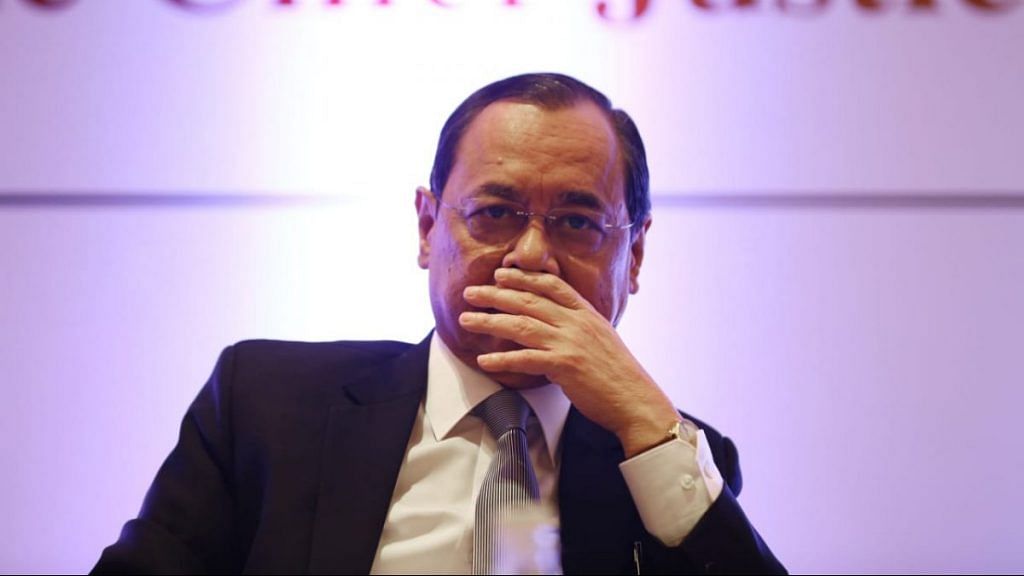Pratap Bhanu Mehta | Contributing editor
The Indian Express
Mehta argues that by accepting the Rajya Sabha nomination, former CJI Ranjan Gogoi has not just cast doubt on his own judgment, character and probity but has dragged the entire judiciary with him. He states that the authority of the Supreme Court rests on the “cogency of its reasoning” and the integrity of its judges. Despite the fact that Gogoi himself had authored a judgment that post-retirement jobs could bring the judiciary into disrepute, his acceptance of the offer states that “the law will not protect you because it is a compromise and the judges will not empower you because they are diminished men”.
Prashant Bhushan | Public interest advocate, Supreme Court
The Hindu
Bhushan argues that the nomination of a former chief justice to Rajya Sabha is a blow to the ‘judiciary’s independence’. He states that Gogoi’s tenure as the Chief Justice was marked by a virtual collapse of independence, especially in light of the sexual harassment allegations against him, where he was the judge in his own cause. The ‘aloofness’ mentioned in the ‘Restatement of Values of Judicial Life’, the 16-point code of conduct for judges, seems to have been forgotten by judges. It raises serious doubts about the fairness of many critical judgments, Bhushan notes.
Amitabh Kant | CEO, NITI Ayog
Richa Rashmi | Young Professional, NITI Ayog
Hindustan Times
The authors focus on the urban dimensions of the coronavirus pandemic and suggest the ways to tackle it. First, the water and sanitation authorities must ensure hygienic systems in the city to effectively combat the spread of the disease. Second, digital infrastructure needs to be strengthened to manage healthcare facilities. Third, data should be analysed to develop a comprehensive and robust system. Non-pharmaceutical interventions (NPI), communication with the community and rationing of healthcare systems can help avoid the worst-case scenario effectively, the authors state.
Sajjid Chinoy | Chief India economist at J.P. Morgan
Business Standard
Chinoy points out that flattening the outbreak curve of COVID-19 will call for larger economic costs in terms of job losses, credit crunches, demand shocks, etc. He does say, however, that not addressing the outbreak will steepen the economic cost further. That said, the economic blow due to flattening the curve will have to be “cushion[ed]” by fiscal, monetary, regulatory policy, he writes.
Dhiraj Nayyar | Chief economist, Vedanta
Financial Express
Like Chinoy, Nayyar also discusses the concept of flattening the curve when it comes to the spread of coronavirus in India. However, he additionally evokes the principle of staying ahead of the curve. Since the virus increases at an “exponential, not linear” pace, implementing social distancing earlier on is key, as shown by countries like South Korea and Singapore. “The economic and human costs for countries ahead of the curve are less than those for countries that take later stage measures,” he explains.
Salil Tripathi | New-York based writer
Mint
Tripathi argues that “India needs data” in order to gauge the full scale of the COVID-19 infection and contain its spread. He explains that early detection through testing is key and “isolating and quarantining those who show signs of being infected will help slow the spread, and treating them early will return them to good health”. “Where the virus originated is not relevant,” he adds.
Ronojoy Sen | Senior Fellow, National University of Singapore
The Times of India
Sen argues that Jyotiraditya Scindia’s switch to the BJP can be interpreted in several ways. It can be seen as “rank opportunism” as well as joining a party with which his family had deep ideological ties. However, beyond this, Scindia’s joining also brings into focus the role of ideology in Indian politics. Given the ideological dominance of the BJP, switching parties will remain a popular pastime, the author states.
Amiyatosh Purnanandam | Michael Stark Professor of Finance, Ross School of Business, University of Michigan
Mint
Purnanandam points out three “fundamental principles of resolving bank failures” in view of the Yes Bank crisis in which “bondholders are already challenging the restructuring plan of the Reserve Bank of India in court”. These principles are honouring contracts, addressing market failure and protecting systemic stability.
Azim Premji | Founder chairman, Wipro Ltd.
The Economic Times
Premji calls the draft National Education Policy “an excellent endeavour” by the Centre but points out that India needs to do more in ensuring “equitable inclusion of disadvantaged groups” and reforming regulations of higher education. India has seen “real progress” in the past 20 years with regard to improving education however, the final NEP “should not be a diluted version of the carefully formulated draft policy”, he concludes.
